Responsible Fishing
Our anglers love to fish because fishermen want to preserve their sport and they would like to see their kids and grandkids out there fishing too. Therefore, care to fish is alive is our first priority. Sustainable fishing means leaving enough fish in the ocean, respecting habitats and ensuring people who depend on fishing can maintain their livelihoods.
Sustainable fishing practices
Overfishing
Nowadays, overfishing is a major risk for global fisheries. The rate of global oceanic fishing today is 2-3 times more than ocean replacement rates. As a responsible company, we release the fishes back into the water after
catching.
Pack Out Everything We Pack In
We use to bring it in, bring it out system. Ensure not to litter in the ocean and keep the fishing area clean. We also do not leave all sorts of junk behind on coastlines and in the water that causes problems. To protect the
environment, we bagging all of our detritus and bringing it to the land with us.
Practice Catch and Release
Practice catch and release fishing to reduce the impacts on fish populations. For responsible fisheries, practice catch and release following action,
- Pinch the barb on your hook flat so it’s easily removed.
- Do not intentionally snag fish. Release those that are snagged quickly.
- Use a circle or barbless hooks to lessen injury to the fish and make hook removal as easy as possible.
- Bring the fish to the boat as quickly as possible to avoid extreme exhaustion.
- Don’t use ultra-light gear for catch and release.
- Keeps the fish in the water and resuscitate it.
- Handle the fish gently with wet hands or moist gloves.
- Don’t lift the fish up in the air or squeeze it.
- Release the fishes back into the water after catching.
Use Lead-free tackle
Lead is still used in many fishing which can cause health problems for fish and wildlife if such devices are swallowed. Lead is toxic when we used lead sinkers and other tackle, we are essentially poisoning our fish and other natural resources. So we ensure to use lead-free sinkers, split shot, jig heads, etc….
Use tackle that matches target
Using tackle that is too light for the target will cause you to fight the fish for prolonged periods of time, greatly increasing the chances of reeling in a fish that is too exhausted to survive upon release. So, we make sure our
tackle is appropriately matched to the target species to help increase survival rates.
Code of conduct of for Sport Fishing
An Ethical Angler:
- Supports and promotes conservation efforts.
- It doesn’t spread exotic plants, animals or release live baits into waters.
- Practices effective catch and release of fish not kept for consumption or that are prohibited to retain.
- Never sells, trades or wastes fish.
- It doesn’t pollute, recycles and disposes of trash.
- Learn and obeys fishing and boating regulations.
- Practices safe angling and boating by following the law and using common sense to prevent injury.
- Respects resources, public and private property and respects others.
- Promotes ethical sportfishing by sharing knowledge, skills and ethics.
- Leaves fishing grounds as clean or cleaner than found.
Do’s and Don’ts for fishing
- Be respectful to other fishers and help them if they need it.
- Use a strong fishing line to land fish quickly.
- Use hooks that can rust out, in case a hook is lost in a fish.
- Use barbless hooks if you intend to release your fish.
- Be respectful of wildlife - Give wildlife the right of way.
- Do not walk behind fishers who are trying to cast. For safety, it is recommended to wear protective glasses and a hat.
- Do not destroy plants along the water - they provide cover and help keep the water cool.
- Do not litter- keep your fishing area clean. Use bring it in bring it out system. Pick up trash and leave the area cleaner.
- Always wear your life jacket.
Catching Fish
- Wire lines are prohibited.
- The backing is permitted.
- Do not crow other fishers.
- Do not take someone else’s spot.
- If you catch a fish, bring it in quickly so you do not exhaust the fish.
- Keep your fish in the water until you know it’s a “ keeper.”
- Avoid brushing - Don’t let fish flop around.
- Don’t let fish flop around.
Additional tips & tactics for successful catch &
release
- Do not intentionally snag fish. Release those that are snagged quickly.
- Use a circle or barb-less hooks to lessen injury to the fish and make hook removal as easy as possible.
- Use heavy enough tackle to land the fish quickly. This avoids broken lines or unnecessary stress on the fish by playing it too long.
- When landing a fish, use a soft, knot-less or rubberized net. Rubber nets are much easier on fish and significantly increase post-release survival rates.
- If you must handle the fish, first wet your hands before handling fish to prevent the removal of the fishes’ protective coating.
- When handling a fish, pay special attention to not put your fingers in the gills or touch the eyes.
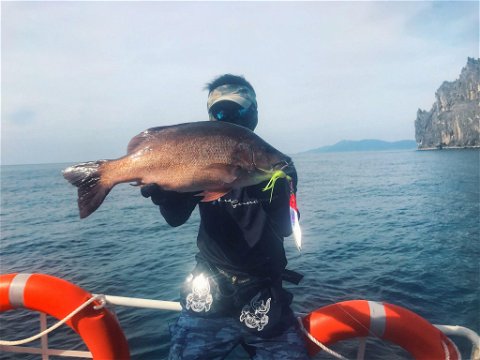
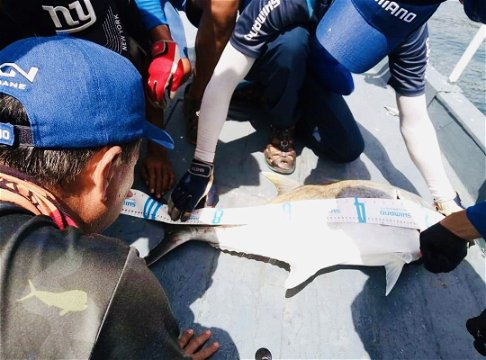
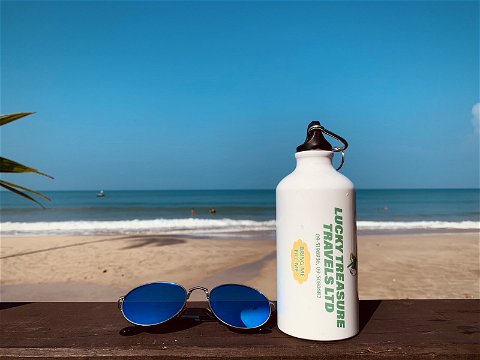

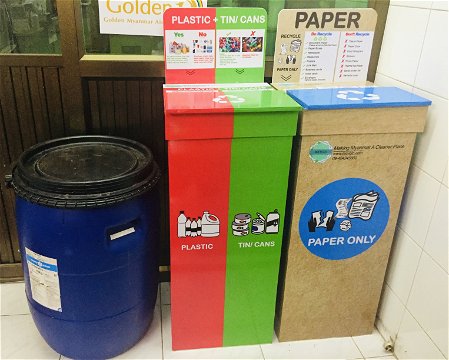
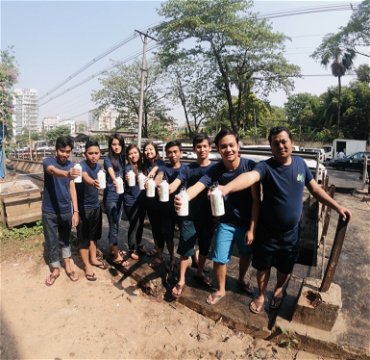



Share This Page